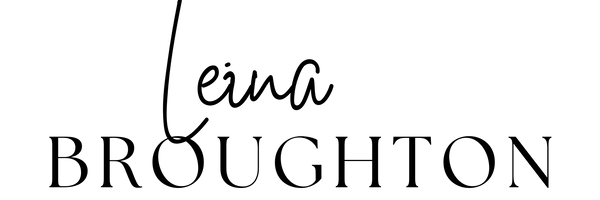Recognising the Clutter of the Past
Be it memories, conversations, situations, or things from our past, these elements create emotional, physical, and mental clutter that holds us back. This metaphorical blockage inhibits our ability to create space for something new and better in our lives. Much like the old saying, "when one door closes, another one opens," cleaning up this clutter from our past paves the way for future potential and new beginnings.
When we learn to make peace with these aspects from our past and truly let go, we create energetic space for new perspectives and new situations to come into our lives.

My question to you ~ what are you holding onto?
I know you had something or someone jump to mind as you read this, we all do. That’s the thing about doing the work on yourself. Just when you think you’re all across it, something jumps up to remind us - not quite smarty pants!
Let’s jump in. Let’s let go and create space together.
Decoding Memories
Our memories aren't facts; they're our perception of past events and situations that we've held on to. Often, what we remember as a 'fact' from our past is nothing more than an adjusted memory, influenced by our emotions at the time.
This concept is brilliantly depicted in the Netflix show, The Mind Explained, highlighting how over time, our memories change and morph, becoming more about how we felt about the situation. Thus, our memories, however vivid they may seem, are not necessarily accurate depictions of past events.

Unraveling Conversations
Conversations are an excellent example of how our emotions can influence our recall. Our brains are constantly being affected by our emotional states, making the playback of past conversations susceptible to emotional bias.
In a conversation, the triggering first sentence might colour our perception of everything that follows. Thus, our recall of conversations often gets warped by the emotions they incite within us.

There are always 3 truths, my truth, your truth and the actual truth.
Let’s explore;
- Take a moment to think about a conversation that you have replaying in your mind on a regular basis. Perhaps it was with a friend, a family member or a work colleague.
- Close your eyes and take yourself back to the situation. Imagine the words that were said to you and how they felt, feel into them deeply.
- Now while your eyes are closed and you’re still in the moment, I want you to energetically step outside of yourself and look back at yourself. Were you at your finest moment that day? Had anything happened previously to mean you were coming into the conversation charged or ready to rumble?
- Notice how when you notice these things about yourself, does the memory change a little? Were there two sides to the conversation that were happening that you had missed previously?
Breathe and acknowledge…
The mind plays games on us, memories are not always what they seem.

Letting Go: Identifying and Addressing Triggers
The question now arises: how do we let go of these past elements, and how do we pick which ones to keep? The immediate emotional response or physical reaction to a memory or conversation can often serve as a tell-tale sign that it no longer serves us.
These triggers can range from past lovers to estranged family members or fallen out friends. Holding on to their energy and memories can block our system, hindering our ability to move forward.
Here’s a little exercise to test out your triggers;
- Close your eyes and think about the moment or person
- Notice your immediate reaction to thinking about this. What is the sensation? Where is it located in your body? Is your internal chatter sharp, fast and defensive or soft and loving.
You know the answer here.
You know which emotion serves you.
You decide.

Moving Beyond the Past, Even the Bad Parts
Can we let go of every situation, even the genuinely distressing ones? Absolutely. We possess the power to move past everything, provided we make a conscious decision to stop devoting our time and energy to that aspect, conversation, or person.
Various methods can help us let go, but one effective way is to send the individual or situation best wishes, love, and gratitude. This act can significantly shift the energy around that person or circumstance, paving the way for healing and growth.
You will know if you have been able to let go when you can energetically send them love without resistance or conditions, this is called moving on.
By letting go, we create space for new opportunities and potential growth in our lives, an essential step towards achieving emotional freedom and peace.
Actions Steps:
It’s time to get curious. It’s time to take a deep look at what is holding you back.
It’s time to let go and move on.
Here is a classic example of something that may be holding you back.
I’m not sure I’m good enough to achieve my goals.
- Where did this come from?
- Was it a conversation or a situation where you didn’t feel good enough?
- What could you let go of in order to move forward?
- What could you change about your memories to help you move forward?
Your ability to achieve and grow is 100% dependent on your ability to believe it’s possible and TAKE ACTION.
Change is inevitable, choosing the change you want is freedom.
As you unleash your creativity and explore the limitless possibilities of your mind, you'll find that the life you've always wanted is within your grasp.
You’ve got this, I believe in you.

_______
This blog has been created and designed to inspire you to Become the Creative Director of your life.
I hope you enjoyed this article, please comment below to let me know.
The greatest gift you could give me is sharing this content with someone who you think might appreciate it. Thank you in advance, I really appreciate it ❤️
See you next week!


2 comments
It’s such a process Janene! Keeping look underneath the ‘not good enough’ story. Where did it come from? Is it really true? How can you shift your perception to start moving forward. You’ve got this ❤️
Thank you so much for this awesome reminder. I’m trying so hard to build my little business and let go of the fear of “not good enough”. It’s a process as it’s been my whole life .